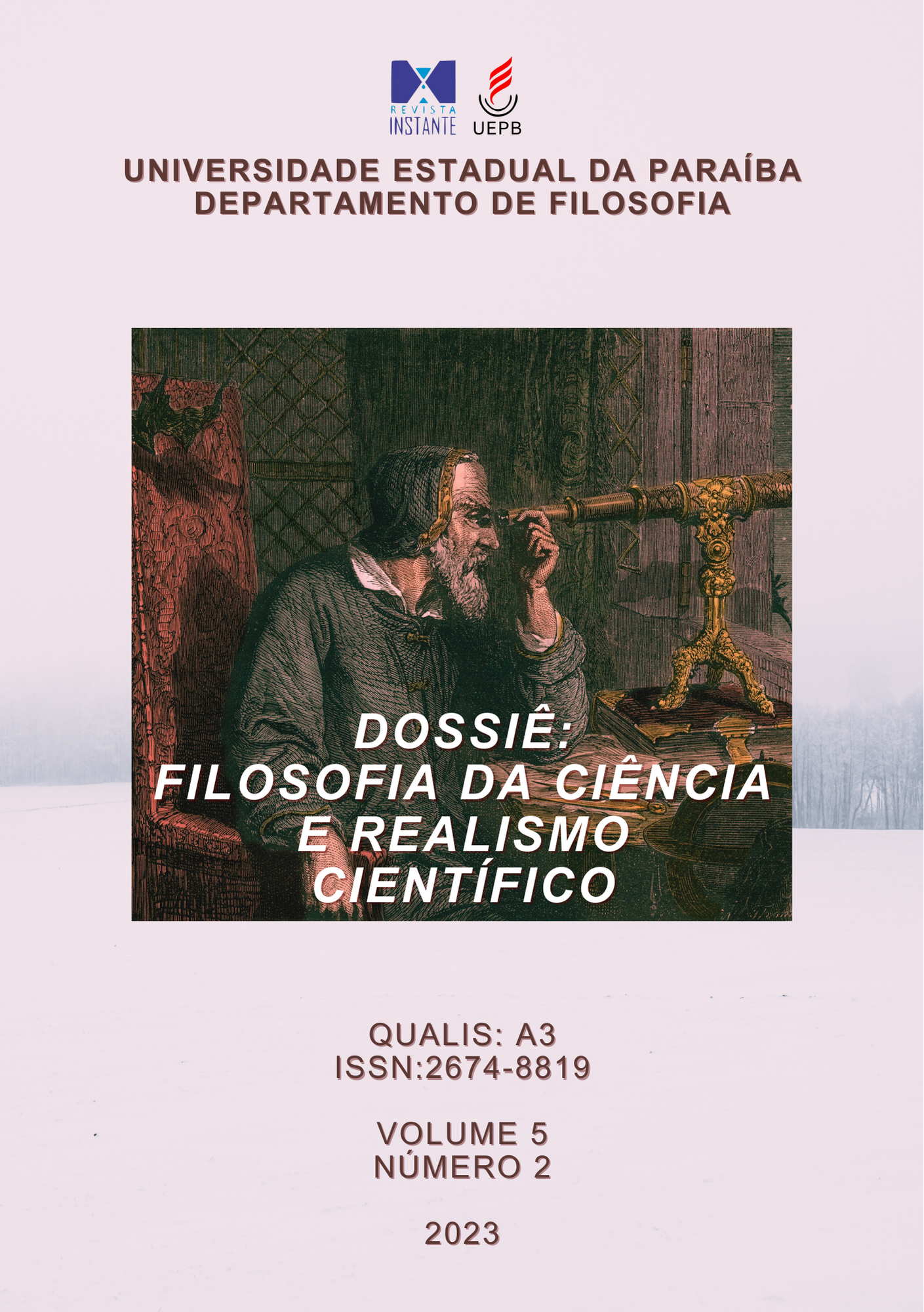ABOUT THE RELATIONSHIP BETWEEN SCIENTIFIC REALISM AND SEMANTIC HOLISM
Keywords:
Scientific Realism. Semantic Holism. Scientific progress. Reference. Theoretical terms.Abstract
Semantic holism has been traditionally considered as a challenge for scientific realism. Stathis Psillos (2020), however, has put forward a novel point of view about the consequences of holism for realism: although he agrees that this semantic thesis brings about problems for realism, he claims that, in some way, it helps the realist agenda, since it prevents the elimination of theoretical terms. The aim of this paper is to analyze the compatibility of semantic holism and scientific realism, and to evaluate the aforementioned position of Psillos. I state that holism cannot be seen as favouring realism. On the one hand, I argue that holism is not compatible with the notions of progress and reference realism implies. On the other hand, I show that the consequence of holism that Psillos regards as benefitial for realism is not so and, in fact, can result in problems for some versions of realism.
References
CRAIG, W. Replacements of Auxiliary Assumptions. The Philosophical Review, 65: 38-55, 1956.
FREGE, G. On Sense and Reference. En P. Geach y M. Black (eds.). Translations from the Philosophical Writings of Gottlob Frege, pp. 56-78. Oxford: Blackwell, 1962 [1892].
KITCHER, S. The Advancement of Science. New York: Oxford University Press, 1993.
KRIPKE, S. Naming and Necessity. Cambridge, MA: Harvard University Press, 1972.
KUHN, T. The Structure of Scientific Revolutions, Chicago: University of Chicago Press (1970, 2nd edition, with postscript).
KUKLA, A. Studies in Scientific Realism. Oxford: Oxford University Press, 1998.
LAUDAN, L. (1981). A Confutation of Convergent Realism. Philosophy of Science, 48: 19-48, 1981.
LEWIS, D. Putnam’s Paradox. Australasian Journal of Philosophy, 62: 221-236, 1984.
PAPINEAU, D. Realism, Ramsey Sentences and the Pessimistic Meta-Induction. Studies in History and Philosophy of Science, 41: 375-385, 2010.
PSILLOS, S. Scientific Realism: How Science Tracks Truth. London: Routledge, 1999.
__________. Causal Descriptivism and the Reference of Theoretical Terms. En Athanassios Raftopoulos and Peter Machamer (eds.), Perception, Realism, and the Problem of Reference, pp. 212-238. Cambridge: Cambridge University Press, 2012.
__________. El giro realista en la filosofía de la ciencia. En N. Gentile y B. Borge (eds.) La ciencia y el mundo inobservable, pp. 49-96. Buenos Aires: Eudeba, 2020.
PUTNAM, H. Explanation and Reference. En G. Pearce and P. Maynard (eds.), Conceptual Change, pp. 199-221. Dordrecht: D. Reidel, 1973.
__________. Mathematics, Matter and Method. Cambridge: Cambridge University Press, 1975.
__________. The Meaning of Meaning. En Arthur Danto (Ed.) Philosophical Papers, Vol. II: Mind, Language, and Reality, pp. 215-271. Cambridge: Cambridge University Press, 1975.
QUINE, W.V. Two dogmas of empiricism. Reimpreso en W.V. Quine (1953) From a logical point of view, Cambridge: Harvard University Press, 1951, pp. 20-46.
RAMSEY, F. Theories. En R. B. Braithwaite (Ed.). The Foundations of Mathematics and Other Essays. Londres: Routledge and Kegan Paul, 1931 [1929], pp. 212-36.
SARDI, G. C.; SILVA, D. O. Realismo, Continuidade Teórica e a Revolução Química. Sapere aude, v. 13 – n. 26, pp. 575-590, 2022.
SEREBRINSKY, D. y Borge, B. Términos teóricos y teorías híbridas de la referencia. Revista de Humanidades de Valparaíso, n.º 17, 2021, pp. 169-191.
SMART, J. J. C. Philosophy and Scientific Realism. London: Routledge & Kegan Paul, 1963.
VAN FRAASSEN, B. The Scientific Image. Oxford: Oxford University Press, 1980.
WORRALL, J. Structural Realism: The Best of Both Worlds? Dialectica, 43: 99-124, 1989.










